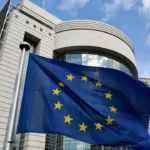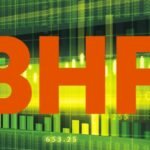Key Points
- The U.S. is reviewing DeepSeek’s national security risks, led by the National Security Council.
- President Trump called DeepSeek’s rise a “wake-up call” for American AI firms.
- AI policy chief David Sacks suggested possible intellectual property theft via AI distillation.
- Trump sees DeepSeek as a motivation for U.S. companies to develop cost-effective AI solutions.
On Tuesday, White House press secretary Karoline Leavitt confirmed that the U.S. government is assessing the national security risks posed by the Chinese artificial intelligence app DeepSeek. The National Security Council is leading the review, reflecting growing concerns over the implications of China’s rapid advancements in AI.
Leavitt described DeepSeek’s rise as a “wake-up call to the American AI industry,” reinforcing President Donald Trump’s stance on strengthening U.S. leadership in AI. Trump echoed similar sentiments, emphasizing the need for American companies to remain competitive in the face of emerging Chinese AI models.
The launch of DeepSeek, which offers AI services at a significantly lower cost than its American competitors, triggered a global selloff in tech stocks on Monday. Investors worried that the Chinese model could undermine the dominance of U.S.-based AI firms like OpenAI and Google.
White House AI and crypto policy chief David Sacks suggested that intellectual property theft could be a factor in DeepSeek’s success. In an interview with Fox News, Sacks pointed to a process called “distillation,” where one AI model learns from another, often without direct access to proprietary data. He warned that major U.S. AI firms might soon take steps to prevent distillation to safeguard their technologies from being replicated.
The U.S. has previously imposed stringent export controls to restrict China’s access to advanced AI chips. Former President Joe Biden implemented these measures to curb China’s AI development, and Trump’s administration appears set to continue this strategy. The Commerce Department, under Trump’s nominee Howard Lutnick, is expected to play a central role in regulating AI chip exports.
Despite concerns, Trump framed DeepSeek’s emergence as an opportunity for U.S. firms to innovate more efficiently. He noted that while China has developed a cheaper AI model, American companies are well-positioned to respond with better, more cost-effective solutions.




